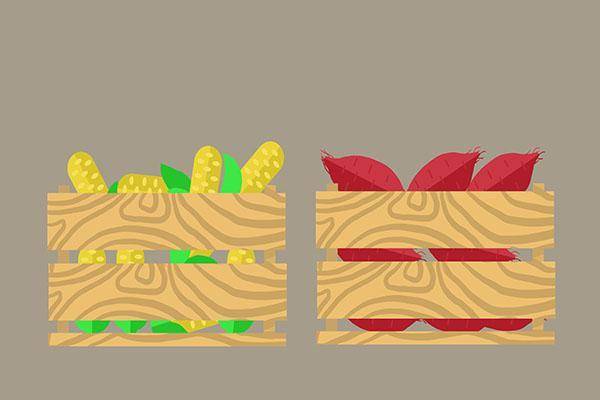The awareness of modern people’s health is gradually increasing, and they are starting to pay attention to their diet. No longer just satisfying hunger, taste is not the main focus anymore, but rather health, as nobody wants to have health issues.
Although some foods may taste good, they are not very healthy, and consuming them in large amounts over a long period can have adverse effects on the body. In recent years, many people have started to eat more vegetarian food, preferring natural and pollution-free green food.
Some people may have doubts about the long-term vegetarian diet not necessarily being good for the body and potentially causing harm. Similarly, some argue that those who adhere to a vegetarian diet have not experienced any health issues.
Is sticking to a vegetarian diet good or bad?
For many people, being vegetarian is equivalent to eating vegetables, fruits, and not eating meat. It can be said that this is oversimplified, without a true understanding of what being vegetarian actually entails.
There are different types of vegetarian diets, mainly categorized as lacto-ovo vegetarianism, flexitarianism, pescatarianism, veganism, or the strict vegetarian diet that most people understand.
Among these types of vegetarian diets, only strict vegetarians do not consume meat. Other types of vegetarians include some meat, dairy, and eggs to ensure adequate nutritional intake.
For strict vegetarians, it is still important to note that although a vegetarian diet may be rich in nutrients, protein supplementation should come from dairy, eggs, or meat to ensure the intake of quality protein beneficial for health.
From a food perspective, individuals who adhere to a vegetarian diet do not seem to have major physical effects if they maintain a balanced nutrient intake, essentially no different from non-vegetarians.
However, from a physical health perspective, it is advisable to be cautious about being vegetarian; it may not be suitable for everyone and should depend on individual circumstances. For instance, people with weak constitutions or metabolic-related issues may experience adverse effects from frequent vegetarian diets.
Long-term vegetarianism in these two groups can easily lead to fluctuations in blood pressure and blood sugar levels, leading to low blood pressure or high blood sugar. To avoid being troubled by health issues, it is essential to arrange the diet reasonably.
In conclusion, being vegetarian has its advantages and disadvantages, mainly depending on how it’s done. If the method of being vegetarian is incorrect or not aligned with individual circumstances, it may have negative consequences on the body. In general, we need to have a correct perception of being vegetarian.
In the opinion of this author, the correct diet should be as follows:
Ensure dietary diversity, including vegetarian, non-vegetarian, coarse grains, fine grains, avoiding too much monotonous food, diversifying the diet to provide sufficient nutrients beneficial for the body.
Eating more vegetables, fruits, dairy, and soybeans on a regular basis can indeed bring more benefits to the body. Each of these food groups contains essential nutrients that the body requires, increasing consumption appropriately can help maintain adequate nutrition levels internally, keeping the body healthy, reducing problems, and enhancing immunity and resistance.
Aside from focusing on food choices, the cooking methods should be considered, avoiding heavy flavors, less salt, oil, and seasoning to reduce the burden on the body.
Recommended cooking methods include boiling, steaming, and light stir-frying, reducing the intake of harmful substances to prevent damage to the body. For those who usually enjoy deep-fried or barbecue dishes, it’s best to make timely adjustments, as it’s also being responsible for one’s health.
Based on the analysis above, a vegetarian diet is acceptable, but it should be done correctly; avoid blind vegetarianism, and when any adverse physical changes occur, it is advisable to stop promptly to prevent further issues.
An appropriate dietary approach should follow the above method, combining both vegetarian and non-vegetarian foods to receive more health benefits.


